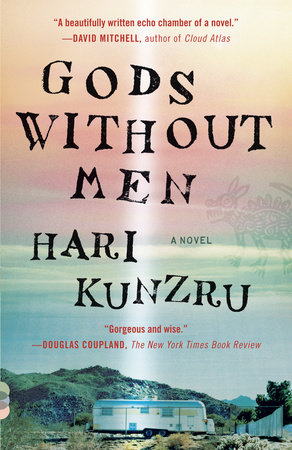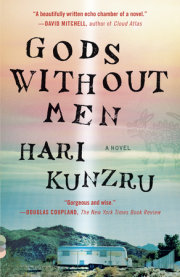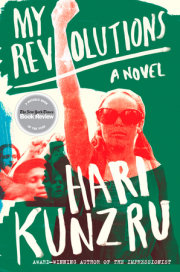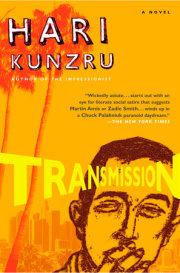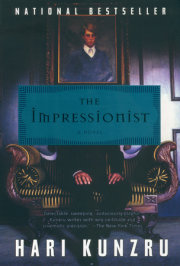In the time when the animals were menIn the time when the animals were men, Coyote was living in a certain place. “Haikya! I have gotten so tired of living here-aikya. I am going to go out into the desert and cook.” With this, Coyote took an RV and drove into the desert to set up a lab. He took along ten loaves of Wonder bread and fifty packets of ramen noodles. He took whiskey and enough pot to keep him going. He searched for a long time and found a good place. “Here, I will set up-aik
ya! There is so much room! There is no one to bother me here!”
Coyote set to work. “Oh,” he said, “haikya! I have so many tablets of pseudoephedrine! It took me so long to get! I have been driving around to those pharmacies for so long-aikya!” He crushed the pseudo until it was a fine powder. He filled a beaker with wood spirit and swirled around the powder. He poured the mixture through filter papers to get rid of the filler. Then he set it on the warmer to evaporate. But Coyote forgot to check his thermometer and the temperature rose. It got hotter and hotter. “Haik
ya!” he said. “I need a cigarette-aik
ya! I’ve done such a lot of hard work-aik
ya!”
He lit a cigarette. There was an explosion. He died.
Cottontail Rabbit came past and touched him on the head with his staff. Coyote sat up and rubbed his eyes. “Honored Coyote!” said Cottontail Rabbit. “Close the door of the RV. Keep it closed. Do your smoking outside.”
Coyote began to whine. “Ouch-aik
ya! Where are my hands-aikya? My hands have blown off.” He whined and lay down and was sad for a long time. Then Coyote got up and made himself hands out of a cholla cactus.
He began again.
He ground the pseudo. He mixed it with the solvent. He filtered and evaporated and filtered and evaporated, until he was sure all the filler was gone. Then he sat down and began scraping matchboxes to collect red phosphorus. He mixed the pseudo with his matchbox scrapings and iodine and plenty of water. Suddenly the flask began to boil. Gas started to fill the air. It got in his eyes, his fur. He howled and scratched at his face.
He choked on the poison gas and died.
Gila Monster came past and sprinkled water on him. Coyote sat up and rubbed his eyes. “Honored Coyote!” said Gila Monster. “Use a hose. Stop your flask, fill a bucket with kitty litter and run the hose down into that. The gas will be captured. Trap it and watch it bubble and boil, there in the flask. Don’t breathe at all if you can help it.”
Coyote began to whine. “Ouch-aik
ya! Where is my face-aikya? I have scratched my face off.” He ran down to the river and made himself a face out of mud and plastered it over the front of his head. Then he began again. He crushed the pseudo and evaporated it. He scraped the matchboxes and bubbled the flask into the bucket of kitty litter. He mixed the chemicals and cooked his mixture and filtered it and added in some Red Devil lye. He watched his thermometer. He was careful not to breathe. He cooled the mixture down and added in some camping fuel and shook it up and jumped up and down for glee when he saw the crust of crystal floating on the liquid. He started to evaporate off the solvent but was so excited that he forgot to keep his tail out of the fire. He was dancing round the lab, lighting everything on fire with his tail.
The lab burned down. He died.
Southern Fox came past and touched him on the chest with the tip of his bow. “Honored Coyote!” he said. “You must keep your tail out of it! That is the only way to cook.”
“Ouch-aik
ya!” whined Coyote. “My eyes, where are my eyes-aik
ya?” Coyote made himself eyes out of two silver dollars and started again. He crushed the pseudo. He filtered and evaporated it, he mixed and heated and bubbled the gas. He filtered and evaporated some more, and then he danced up and down. “Oh, I am clever-aikya!” said Coyote. “I am cleverer than them all-aik
ya!” He had in his hands a hundred grams of pure crystal.
And Coyote left that place.
That is all, thus it ends.
1947First time Schmidt saw the Pinnacles he knew it was the place. Three columns of rock shot up like the tentacles of some ancient creature, weathered feelers probing the sky. He ran a couple of tests, used the divining rods and the earth meter. Needle went off the scale. No question, there was power here, running along the fault line and up through the rocks: a natural antenna. The deal was done quickly. Eight hundred bucks to the old woman who owned the lot, some papers to sign at a law office in Victorville and it was his. Twenty-year lease, easy as pie. He couldn’t believe his luck.
He bought a used Airstream off a lot in Barstow, towed it onto the site, and sat for a whole afternoon in a lawn chair, admiring the way the aluminum trailer reflected the light. Took him back to the Pacific, the Superforts on their hardstands at North Field. The way those bombers glittered in the sun. There was a lesson in that dazzle, showed there were worlds a person couldn’t bear to look upon directly.
He didn’t sleep at all the first night. Lying under a blanket on the ground, staring straight up, he kept his eyes open until the blacks turned purple, then gray, and the wool was frosted with little droplets of condensation like tiny diamonds. The desert smell of creosote and sage, the dome of stars. There was more action up in the sky than down on earth, but you had to drag yourself out of the city to know it. All those damn verticals cluttering your sightline, all the steel pipes and cables and so forth under your feet, jamming you up, interrupting the flows. People hadn’t fooled with the desert. It was land that let you alone.
He thought he stood a good chance. He was still young enough to take on the physical work, unencumbered by wife or family. And he had faith. Without that he’d have given up long ago, back when he was still a kid reading mail-order tracts on his lunch break, making his first tentative notes on the mysteries. Now he wanted no distractions. He didn’t bother about the good opinion of the folks in town. He was polite, passed the time of day when he went to pick up supplies at the store, but didn’t trouble himself further. Most men were fools; he’d found that out on Guam. Sons of bitches never would let him be, giving him nicknames, making childish jokes at his expense. Took all he had not to do what was on his mind, but after Lizzie he didn’t have the right, so he’d tamped down his anger and got on with fighting the war. Those saps had flown lord knew how many missions and with all those hours logged, all that chance to see, they still thought the real world was down on the ground, in the chow line, between the legs of the pinup girls they pasted over their rancid cots. Only person he met with a lick of sense was that Irish bombardier, what was his name, Mulligan or Flanagan, some Irish name, who told him of the lights he’d spotted when they were on their way to drop a load over Nagoya, green dots moving too fast to be Zeroes. Asked to borrow a book. Schmidt lent it to him, never did get it back. Kid went down with the rest of his crew a week later, ditched into the sea.
Little by little, the place came together. The trailer was hot as all hell and he was trying to work out some way to utilize the shade of the rocks when he found the prospector’s burrow. Didn’t know what it was until he asked at the bar in town. Concreted over a few years previous when they flushed the old bastard out, some story about thinking he was a German spy. Crazy as a coot he may have been, probably starving to death since there wasn’t a cent of silver or anything else on his so-called claim, but he knew how to dig. A whole room, four hundred square feet, right under the rocks. Cool in summer, insulated against the winter nights. A goddamn bunker.
After that it was all gravy. He graded an airstrip, sunk a gas tank into the dirt, threw up a cinder-block shelter and painted welcome in big white letters on the tin roof. Now he had a business. The café was never going to amount to much, but then he didn’t need it to be General Motors. He felt he could have gotten along without another living soul, but his savings weren’t going to last forever. He had another year, perhaps two, before money got tight, just about the right time for an enterprise like that to find its feet.
There weren’t too many passing aircraft. About once a week someone would land. He’d serve them coffee, fry eggs. When they asked what he was doing out there he’d say just waiting, and when they asked what for he’d say he didn’t know yet but it sure beat sitting in traffic, and that was usually enough for them. He’d never take visitors down into the bunker. After a few months the numbers increased. Pilots flying to and from the coast began to hear there was a place to refuel. He bought some chairs and Formica-top tables, laid in a stock of beer.
There were problems, of course. His generator broke down. There was a confrontation with some Indians he caught clambering about on the rocks, had to show them his shotgun. After they went away he found rock drawings up there, handprints and snakes and bighorn sheep. Another day a dust storm forced a plane down. The wind was blowing sideways across the strip at fifty miles an hour and the pilot did well to land at all—looked like it would pick up his left wing and flip him as he made his approach. Schmidt ran out to meet him, holding a bandanna over his mouth. Without thinking he took him underground, the logical place to shelter.
The pilot was a young buck, twenty-one or so, head of dark hair, little dandyish mustache. Rich kid. As he stripped off his jacket and goggles, he looked around in wonder, asked where on earth he was.
By that time the project was well advanced. Schmidt had built a vortical condenser to store and concentrate the paraphysical energies flowing through the rocks. A crystal was set into a gimbal on the tip of the tallest stack, angled toward Venus. He was developing a parallel piezoelectric system, based on his study of Tesla, but for now was sending signals using an old Morse key, with an aetheric converter to transform the physical clicks into modulations of the paraphysical carrier wave. He explained all this to the pilot, who listened intently, taking in the machinery, the piles of books and notes. He seemed impressed.
“And what message are you sending?”
Copyright © 2012 by Hari Kunzru. All rights reserved. No part of this excerpt may be reproduced or reprinted without permission in writing from the publisher.

